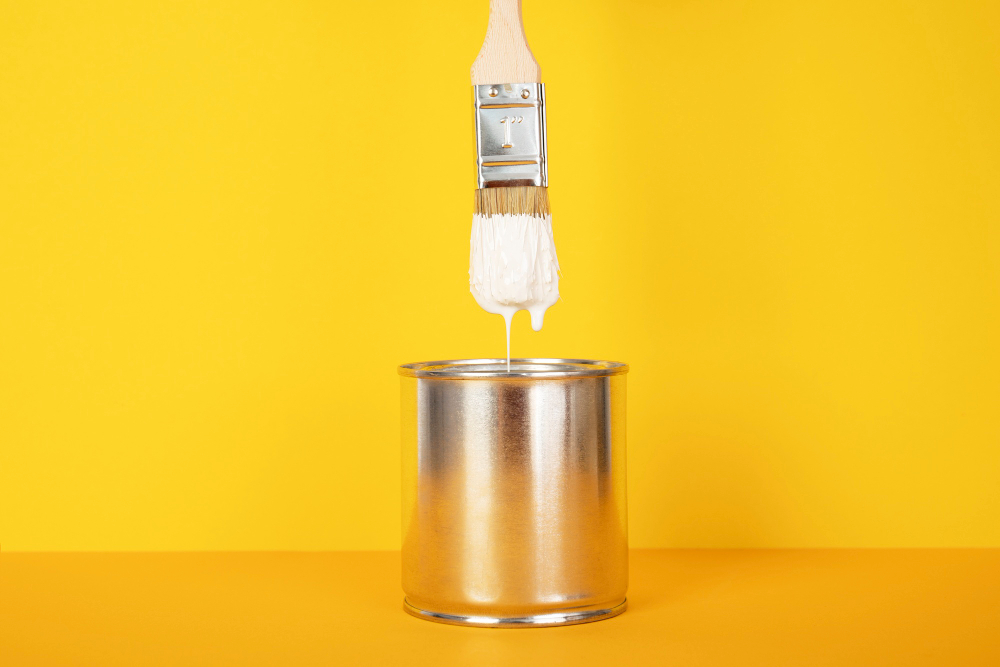We’ve all been there—freshly painted walls, smooth and shiny, only to notice unsightly bubbles or blisters forming days later. This is a frustrating issue that can make your hard work seem like it’s gone to waste. But don’t jump to conclusions! Paint bubbling and blistering can happen for a variety of reasons. Let’s explore the common causes behind these paint problems and offer tips to help you prevent them in the future.
What Causes Paint Bubbles and Blisters?
While it might seem like your paint is the problem, it’s often other factors that contribute to this issue. Let’s break down some of the main culprits:
1. Moisture Issues
One of the most frequent causes of paint bubbling is excess moisture. When moisture seeps through the walls or from underneath the paint layer, it disrupts the paint’s bond with the surface, leading to bubbles or blisters. This can happen if the surface wasn’t properly dried before painting, or if there’s ongoing moisture buildup, such as in areas with high humidity or leaking pipes.
To avoid this, ensure the surface is completely dry and consider using a moisture-resistant primer. If moisture continues to be a problem, it may be worth investigating the underlying issue, such as a leaking roof or plumbing.
2. Poor Prep Work
As with many painting issues, poor prep work can lead to serious problems down the line. If you didn’t properly clean the surface or remove old layers of paint, you may end up with paint that doesn’t adhere well. This lack of adhesion can lead to the formation of blisters or bubbles over time.
Before starting any painting project, ensure you clean the walls thoroughly, remove any peeling or chipped paint, and repair any damaged surfaces. A smooth, clean foundation is key for a perfect finish.
3. Improper Paint Application
Another common reason for bubbling and blistering is improper paint application. This can happen if the paint is applied too thickly or if it’s applied under the wrong conditions, such as on a hot or humid day. When paint is applied too thickly, it traps moisture beneath the surface, preventing it from drying properly and resulting in bubbles.
The solution here is simple: apply multiple thin coats of paint rather than one thick layer. This allows each layer to dry properly, minimizing the chances of bubbles forming.
4. Temperature Fluctuations
Extreme temperature changes can cause paint to bubble and blister. When painting in areas where temperature fluctuates drastically (such as garages or outdoor spaces), the paint may expand or contract unevenly, leading to surface defects. This is particularly problematic in the first few days after application, when the paint hasn’t fully cured yet.
To avoid this issue, try to paint when the temperature is consistent and within the recommended range on your paint can (usually between 50-85°F or 10-29°C). If you’re painting in an area prone to temperature changes, consider using a more durable paint designed for those conditions.
How to Fix Blistered Paint
If you’ve already experienced blistering, don’t worry! Fixing the problem is possible. First, scrape away the blistered areas and sand the surface smooth. If moisture is the issue, you’ll need to address the source of the moisture before repainting. After repairing the surface and allowing it to dry completely, apply a primer followed by fresh coats of paint.
Fixlaa — Quality Without the Hassle
Dealing with paint bubbling or blistering issues doesn’t have to be stressful. For those looking for hassle-free solutions, Fixlaa is the smart, trusted choice for painting and home improvement needs. Whether it’s preparing your walls or ensuring the right products for the job, Fixlaa makes quality home maintenance easy and reliable. Don’t let paint issues ruin your space—contact us today for expert advice and top-notch service.


